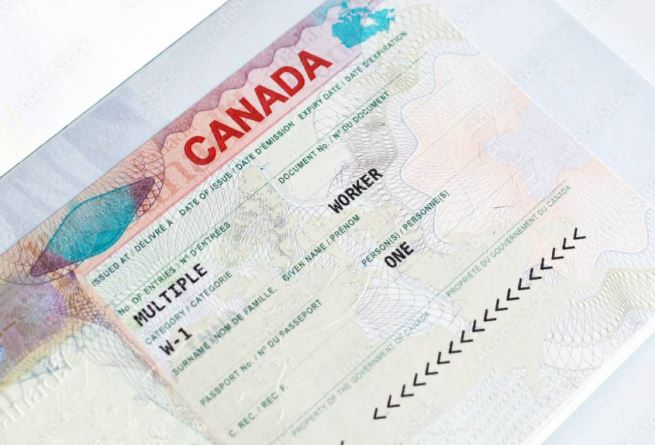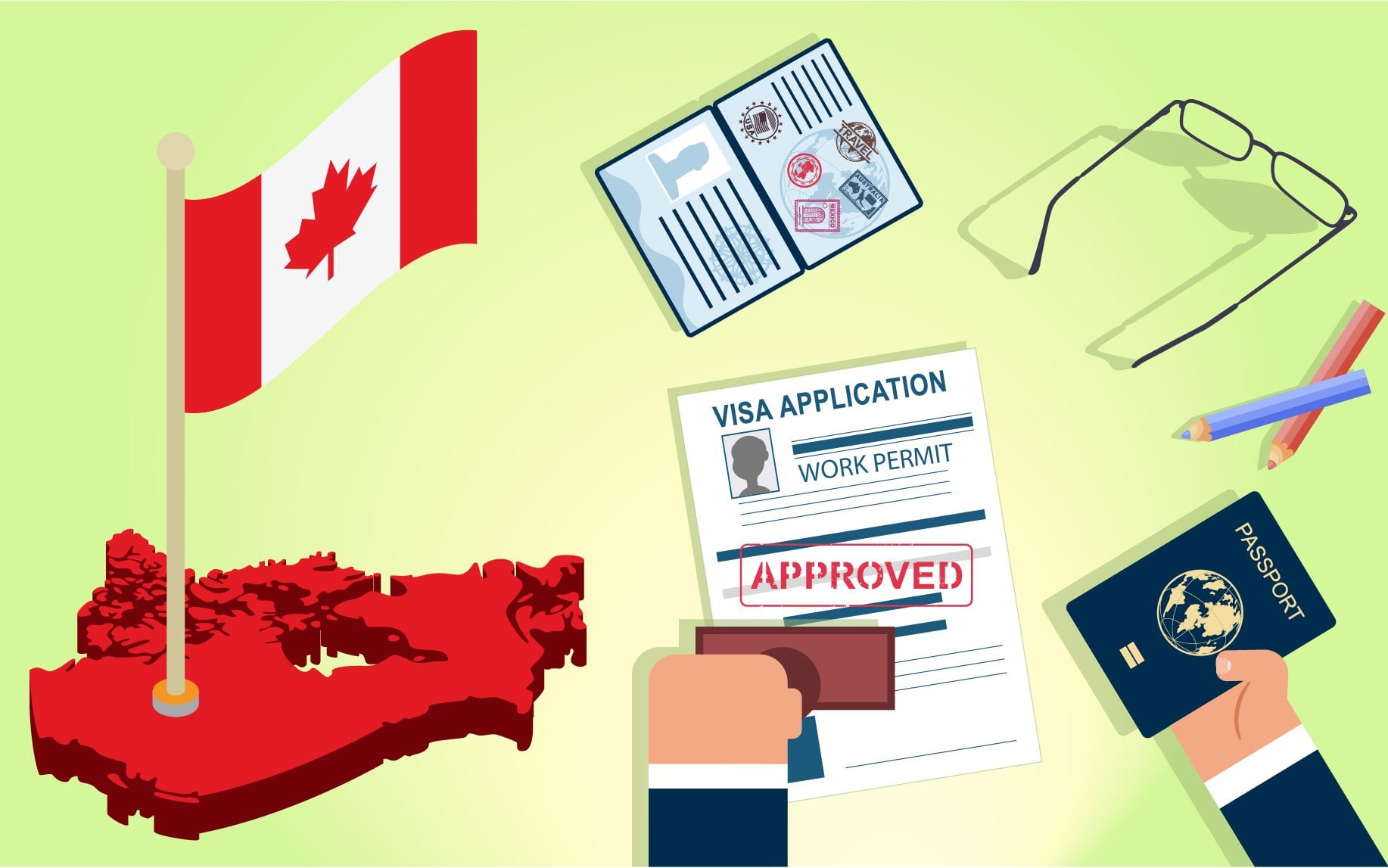What are Work Permits and Visas for Canada?
Understanding Work Permits in Canada
A work permit in Canada is essential for foreign nationals who wish to work legally in the country. Below are some key points to understand about work permits:
- Definition: A legal document that permits a foreign national to engage in employment within Canada.
- Requirement: Most foreign nationals need a work permit to work in Canada.
- Types: There are various types of work permits available, tailored to specific job offers and conditions.
This process is managed by Immigration, Refugees and Citizenship Canada (IRCC) and involves certain criteria and steps, ensuring the applicants meet the necessary qualifications to work within the nation. Transitioning from understanding the basics of work permits, let’s delve into the various types of visas available for working in Canada.
Types of Visas Available for Working in Canada
Canada offers two main types of work visas:
- Temporary Work Visas: Valid typically for one year, extendable up to three years.
- Example: Post-Graduation Work Permit allows graduates to stay for up to three years.
- Permanent Work Visas: For long-term employment prospects and potential pathways to residency.
Next, let’s explore the eligibility criteria for acquiring a work permit in Canada.
Types of Visas Available for Working in Canada
Eligibility Criteria for Work Permits
To apply for a work permit in Canada, certain eligibility requirements must be met:
- Inside Canada: Hold valid status, e.g., as a visitor or student.
- Outside Canada: Job offer from a Canadian employer, Labor Market Impact Assessment (LMIA).
- At Entry: Proof of job offer, support documents.
Next, let’s explore the steps to apply for a work permit.
Eligibility Criteria for Work Permits
Steps to Apply for a Work Permit
To apply for a Canadian work permit, follow these steps:
- Be Eligible: Meet the eligibility criteria.
- Gather Documents: Compile necessary documents.
- Start Application Online: Register and submit your application.
- Pay Fees: Cover processing fees.
- Complete Biometrics: Provide fingerprints and photos.
- Medical Examination: Undergo a medical exam if required.
- Move to Canada: Receive approval and relocate.
Next, let’s discuss the different types of Canadian visas.
Getting a Visa for Working in Canada

Steps to Apply for a Work Permit
Different Types of Canadian Visas
Canada offers two primary types of work visas:
- Temporary Visas: Usually valid for one year, extendable up to three years.
- Example: Post-Graduation Work Permit, allowing graduates to stay for up to three years.
- Permanent Visas: For long-term employment and pathways to permanent residency.
Next, we will cover the visa application process and requirements.
Different Types of Canadian Visas
Visa Application Process and Requirements
To obtain a Canada work visa, you must follow these steps:
- Prepare Documents:
- Valid passport or travel document.
- Education credential assessment report.
- Language test results.
- Written job offer, if applicable.
- Proof of work experience.
- Provincial nomination, if any.
- Police certificate.
- Proof of funds.
Ensuring compliance with these requirements is crucial for a smooth application process. Next, let’s explore the benefits and limitations of work permits.
Work Permit vs. Permanent Residency in Canada

Visa Application Process and Requirements
Benefits and Limitations of Work Permits
Work permits provide several advantages and limitations:
- Benefits:
- Legal right to work in Canada.
- Opportunity to gain Canadian work experience.
- Pathway to permanent residency.
- Limitations:
- Time-bound validity, usually requiring renewals.
- Restricted to specific employers or job positions in some cases.
Next, let’s explore pathways to transitioning from a work permit to permanent residency in Canada.
Benefits and Limitations of Work Permits
Pathways to Permanent Residency from a Work Permit
Transitioning from a work permit to permanent residency in Canada involves several pathways:
- Canadian Experience Class (CEC): For those with skilled work experience in Canada.
- Provincial Nominee Programs (PNP): Nomination by a Canadian province or territory.
- Federal Skilled Worker Program (FSWP): Requires meeting skill, education, and work experience criteria.
Next, let’s explore the working conditions in Canada for visa holders.
Pathways to Permanent Residency from a Work Permit
Rights and Responsibilities of Foreign Workers
Foreign workers in Canada have specific rights and responsibilities:
- Rights:
- Work under safe conditions.
- Receive fair wages.
- Access to health services and legal protection.
- Responsibilities:
- Adhere to the conditions of the work permit.
- File taxes.
- Respect Canadian laws.
Understanding these ensures a smooth and lawful work experience. Next, let’s delve into the workplace culture and legal protections available in Canada.
Rights and Responsibilities of Foreign Workers
Workplace Culture and Legal Protections
In Canada, foreign workers experience a supportive workplace culture and strong legal protections:
- Workplace Culture:
- Inclusive and diverse environments.
- Emphasis on work-life balance and professional development.
- Legal Protections:
- Protection against discrimination and harassment.
- Access to labor rights and safety regulations enforced by the government.
These aspects ensure a positive and secure work experience. To wrap up, let’s consider crucial factors before applying and provide useful resources.
Conclusion and Resources
Workplace Culture and Legal Protections
Important Factors to Consider Before Applying
Before applying for a work permit in Canada, consider these important factors:
- Eligibility: Ensure that you meet the eligibility requirements for the specific job offer.
- Employer: Your work permit will tie you to the employer named in your visa application.
- Dependent Visas: You can apply for dependent visas for your spouse and children.
- Requirements: Be prepared to provide necessary documents such as proof of work experience, job offer, and proof of funds.
Taking these into account will streamline your application process and help you make an informed decision. For more information and assistance, refer to the resources listed below.
Next, let’s go over some useful links and contacts for further information.

Important Factors to Consider Before Applying
Useful Links and Contacts for Further Information
For comprehensive guidance on work permits and visas in Canada, consult these resources:
- Government of Canada Immigration and Citizenship: Canada.ca
- Immigration, Refugees and Citizenship Canada (IRCC) Contact:
- Phone: 1-888-242-2100 (within Canada)
- Provincial Nominee Programs: Provincial Immigration
These resources provide essential information and support, ensuring a smooth application process. With the right knowledge, you’ll be well-prepared to embark on your journey to Canada.

